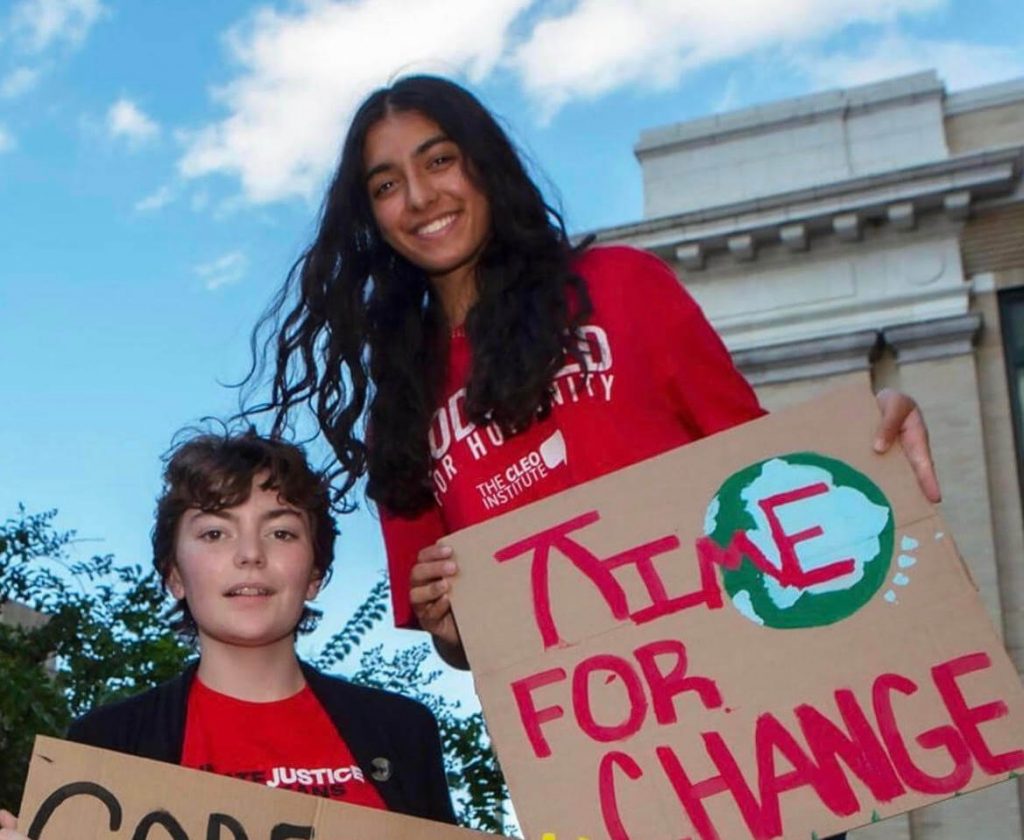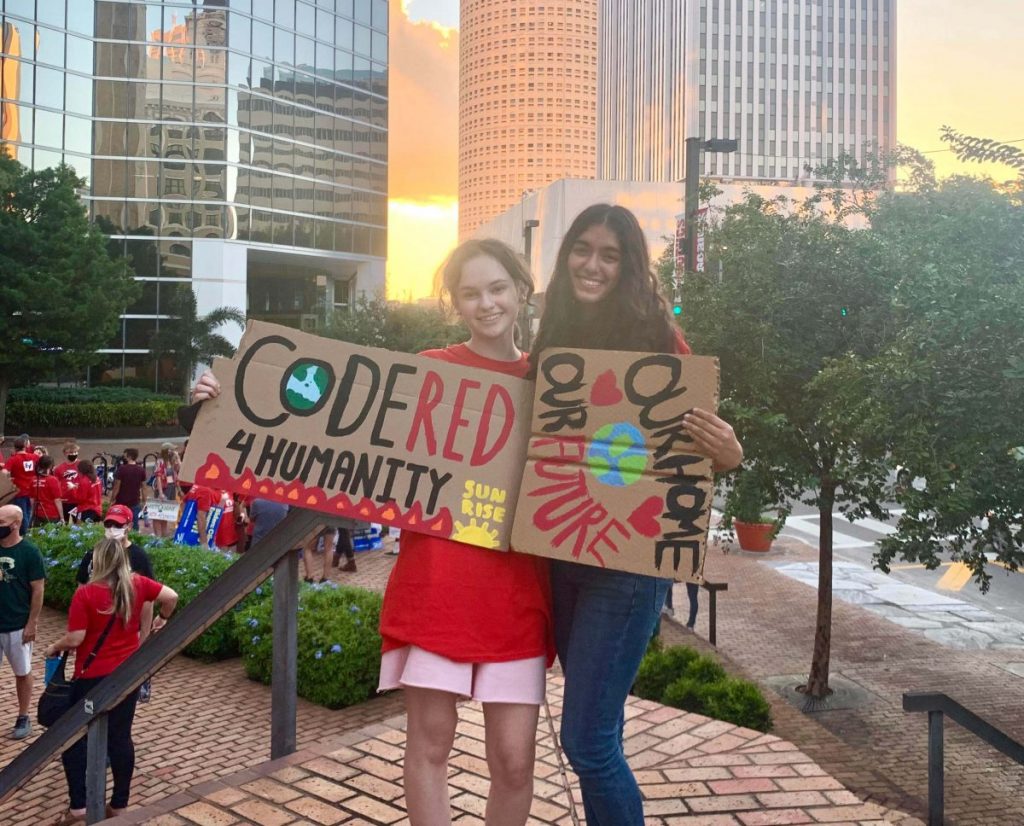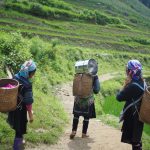
Anisa Nanavati, 17, found her voice two years ago. In the summer of 2019, she went to a protest for reproductive rights in Orlando, Florida — and she was taken with the energy and enthusiasm of the crowd. She felt that the climate movement was gaining steam, and she says at that moment she knew she had to start fighting.
“Personally, I just became really tired of just watching. I really just wanted to do something,” Nanavati says. “So one day I just got on my computer and I emailed hundreds and hundreds of organizations all over. I was like: I want to be a part of this movement.”
She became involved in climate organizing with a group called Earth Uprising, but now works as a student volunteer with an advocacy organization called Action for the Climate Emergency. As part of her outreach efforts, Nanavati actively works to combat climate denial and shares advice on how to talk with skeptical family members in a non-hostile way about the real facts of climate change. ACE is “really focused on education and storytelling,” says Nanavati, and “really uplifting youth voices when it comes to the fight against climate change.”
She’s just one of a swelling tide of young women working to organize and promote activism around the climate crisis. In the wake of the COP26 climate summit in Glasgow, young activists are digging in for a fight at home.
Young women were present at the conference, even if they weren’t seated at the negotiating tables. Greta Thunberg taunted political leaders from outside the event, telling protesters the UN climate change summit was a “two-week long celebration of business as usual and blah, blah, blah” to “maintain business as usual” and “create loopholes to benefit themselves”.
A UN report published last month showed that even though men made up just over half of government delegates at past climate talks, they spoke for 74% of the time, making their voices vastly overrepresented in negotiations. Climate justice advocate and former president of Ireland Mary Robinson dismissed the summit in Glasgow week as “too male, too pale, too stale.”
Alexandria Villasenor, a 16-year old climate activist from New York who attended the conference, tweeted her dissatisfaction with the lackluster climate outcomes of COP26, saying “When you get really, really close to the #COP26 negotiations and outcome, you can see that power is held by only a few world leaders, who have been bought and paid for entirely by the fossil fuel industry.” (For his part, President Biden played up the positives of COP26, saying “I can’t think of any two days where more has been accomplished on climate.”)
Nanavati, who has been profiled as a young activist in Business Insider and The Guardian, was watching Twitter in the days leading up to the summit and saw that youth activists weren’t even allowed into the summits. “Honestly, I feel like at that point, things like COP become less about making progress and more of just a ceremonial type of thing, trying to show the world that we’re moving in a direction,” she says. “But the goals that were made there were in no way adequate to the crisis that we’re facing at the moment.”
Nanavati and others say that in terms of climate goals, an expedited commitment to net-zero emissions is of critical importance — but also thinking about the needs of people who may already be disadvantaged. “We need to really ensure that there’s a just equitable transition from fossil fuels,” she says. “And to make sure that we address environmental racism, we should look to indigenous peoples for solutions when it comes to the climate crisis. I want to see that process sped up: I mean, anything is progress at this point.”

At the COP26 conference, Indigenous delegates at the conference emphasized how their people are bearing the burden of climate policies. Even well-intentioned policies like switching to electrification and renewable energy can wreak havoc on tribal lands, because of the mining for minerals needed for batteries and panels. “You can’t be sacrificing Indigenous Peoples and clean water in order to get solar panels,” an Indigenous climate activist named Nuskmata told Canadian media company The Narwhal before leaving for the Glasgow summit. “It’s not just swapping out oil and gas. It’s about changing the system so that it’s sustainable for everybody.”
Women and girls around the world bear the brunt of climate change: 80 percent of the displaced by climate related disasters and changes around the world are women and girls. Vanessa Nakate, a 24-year-old Ugandan climate activist, addressed a crowd of protesters in Glasgow to discuss the immediate impacts of climate change facing her country and continent. “We are in a crisis,” she said. “We are in a disaster that is happening every day.”
Nakate has emerged as a voice for climate action in Africa, a continent that is responsible for only 3 percent of global emissions, but whose people are suffering some of the most brutal effects of the climate crisis.
Nanvati says she sees the immediate climate impacts already happening in her home region in Florida, and she wants to see more climate education happening in schools.
“In our state, teachers are only required to teach that the climate is changing — and they can attribute it to whatever they want. They can say that it’s natural,” she says. “But obviously we know that climate change is a man-made, anthropogenic event. So our education systems are not teaching us that it’s an important thing. So why would students be worried about something that we know nothing about?”
She remains optimistic through her anger at the fossil fuel companies like Exxon Mobil that critics say push a story about personal responsibility rather than systems-level change. That’s partly because she has seen the impact in her own life of having challenging conversations about the climate crisis with family members and peers.
“I think every little thing matters — every letter that you write to a representative, every call you make to them — they will listen. It is so important for us as young people to be reaching out to these people, because we might not be able to vote but as their constituents, they have to listen to us. Every little step helps.” ■




